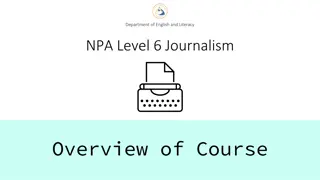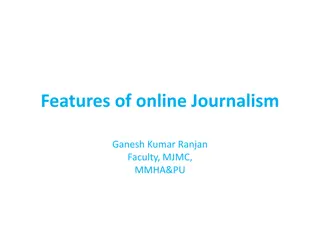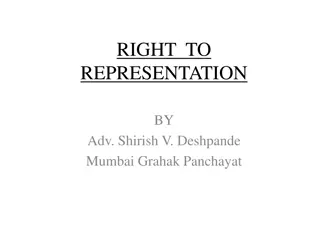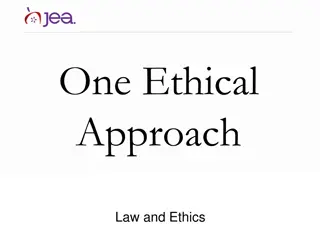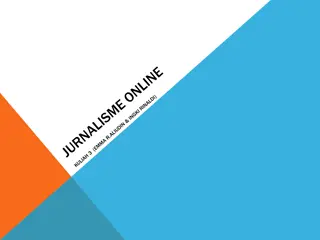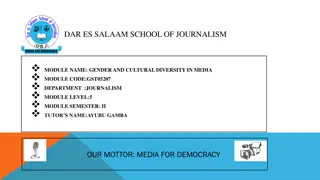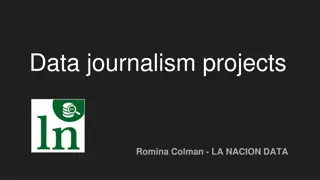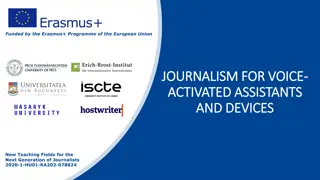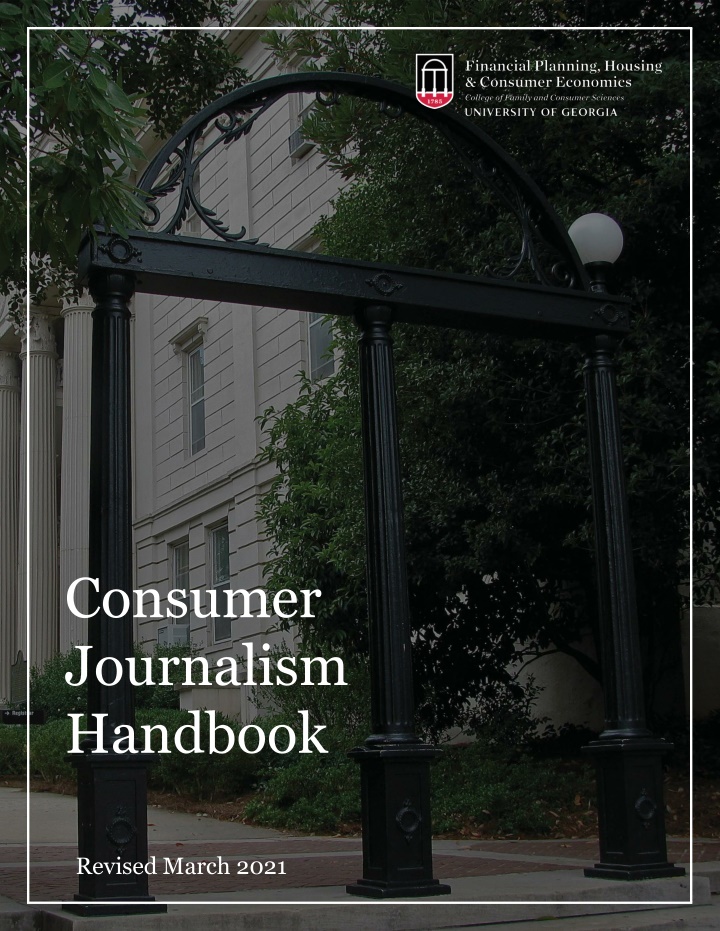
Consumer Journalism Major: Careers, Requirements & Expertise
Consumer Journalism equips students with skills to solve consumer problems and make a difference. The major focuses on design thinking, career goals, and admission requirements. Potential careers include non-profit work, corporate positions, and entrepreneurship opportunities.
Download Presentation

Please find below an Image/Link to download the presentation.
The content on the website is provided AS IS for your information and personal use only. It may not be sold, licensed, or shared on other websites without obtaining consent from the author. If you encounter any issues during the download, it is possible that the publisher has removed the file from their server.
You are allowed to download the files provided on this website for personal or commercial use, subject to the condition that they are used lawfully. All files are the property of their respective owners.
The content on the website is provided AS IS for your information and personal use only. It may not be sold, licensed, or shared on other websites without obtaining consent from the author.
E N D
Presentation Transcript
Consumer Journalism Handbook Revised March 2021
How to Use the Handbook To understand the major To consider possible careers To review the course requirements To plan your program of study Notes: Applications for admission to Consumer Journalism will be accepted up to the third Friday of the Fall and Spring semesters. Students who are planning to major in Consumer Journalism and wish to be advised by a Consumer Journalism advisor prior to acceptance to the major must be designated as an intended Consumer Journalism major. If you are interested in Consumer Journalism as a major, you will need to complete the application for Consumer Journalism found at the following URL: If you have specific questions, please contact Dr. Dee Warmath (warmath@uga.edu) or Mr. Ahmaud Templeton (ahmaud@uga.edu).
The Consumer Journalism Major Consumer Journalism equips students with the process, skills, and knowledge they require to shine the light and solve the riddle for a variety of wicked, interdisciplinary consumer problems in society. Shining the light involves bringing attention to the problem that motivates action. Solving the riddle involves design, implementation, and evaluation of innovative approaches. The major is built on the concept of design thinking for consumer well-being. The core courses in the major provide process and skills that can be applied across a wide range of topics. Beyond these five courses, students majoring in Consumer Journalism choose from courses across UGA to build expertise in a particular area of interest. We call this area of interest the student s substantive or content area. For example, a student may want to focus on building financial well-being as their substantive area. Perhaps their career goal is to establish a fin tech start up to improve financial well-being for their target audience. They might choose courses related to financial decision making, behavioral economics, psychological and/or sociological theory, and game design. Design thinking for consumer well-being + expertise in a particular area of interest = preparation to make a difference. Upon graduation with a major in Consumer Journalism, the student will be prepared to articulate their chosen content area in relation to their career objectives, to describe the purpose of social entrepreneurship, and to apply the methods and process of social entrepreneurship. Requirements for admission include: Cumulative GPA of 2.0 or better Completion of Core Areas I-V GPA of 2.8 or better in Areas I, II, III and V Statement describing career goals and proposted substantive area of study to support career goals Since Consumer Journalism is a high-demand major, the number of students admitted in any given semester will be determined by the available number of slots. Thus, meeting the minimum requirements does not guarantee acceptance into the major.
Potential Careers What might you do with a Consumer Journalism major? Start a non-profit organization Take a corporate position Work for a foundation Launch a company with a conscience Make a difference in corporate social responsibility Become an innovator Who hires Consumer Journalism graduates? AT&T | Bloomingdale s | Home Depot | Oracle | Insight Global | Nordstrom The University of Georgia | Publicis Worldwide | Northeast Health District | Avaline | What are the outcomes of recent graduates? 67% Employed Full-Time** 13% Employed Part-Time 8% Internships 4% Attending Grad School
Major Requirements Area V: Perspectives Course Purpose is to build capacity to see a situation from multiple perspectives Satisfy by selecting any 2000+ course that examines a topic from multiple perspectives Writing Course Purpose is to build capacity to articulate ideas effectively Satisfy by selecting any W suffix designated course Professional Innovation Purpose is to build skills necessary for your intended career Satisfy by selecting any course that teaches a skill relevant to your professional interest Required Courses: Core Course Sequence FACS 2000/2000E: Introduction to Family and Consumer Sciences FHCE 4010/6010: Introduction to Social Entrepreneurship (Fall only) FHCE 4011/6011: Social Entrepreneurship: Strategic Storytelling (Spring only) FHCE 4051/6051: Social Entrepreneurship: Social Impact Communication (Fall only) FHCE 5011/7011: Social Entrepreneurship Capstone (Spring only) Substantive/Content Area Courses: Choose 15 hours in your content area These credit hours can come from any UGA college and should build expertise in an area of interest Other Courses Choose 9 additional hours of FACS coursework (for example, you might complete the Applied Consumer Analytics sequence of courses) Choose 12 hours as major or content area electives Choose 13 hours of general electives
Your Program of Study The core course sequence: Identifying your substantive/content area: Most students enter the major with a general sense of their substantive or content area. By exploring potential areas of interest, the career options available, and the courses that might support their interests, the student curate their substantive area. It is important that the student graduates with their core social entrepreneurship skills and expertise in the area or topic in which they would like to build a career. Your advisor and professors are available to help you explore what this area might be. Finding the right courses for you: The most unique feature of this major is the flexibility it provides. Rather than completing a list of pre-determined courses, students in Consumer Journalism design their own major around their interests and the career opportunities they see. With that flexibility comes the responsibility to consider the collection of courses taken. The more intentional the selection of courses, the better prepared the student will be to make a difference post-graduation. Students are free to take courses from any UGA college. They will work with their advisor to establish criteria for selecting courses. These criteria will be based on student interests and career objectives as well as the availability of courses.
Advisement Form Name: 81X ID # Desired Graduation Date: HoursEarned: E-mail: Phone: Content Area Pleaseindicate any major(s) that you are pursuing in addition to Consumer Journalism: 2ndMajor 3rdMajor 4thMajor CoreCourses When Taken/Planned Course FACS 2000/2000E 1. FHCE 4010/6010 2. FHCE 4011/6011 3. FHCE 4051/6051 4. FHCE 5011/7011 5. Content AreaCourses (15 hours) When Taken/Planned Course 1. 2. 3. 4. 5.
Advisement Form Area V When Taken/Planned Course Perspectives 1. Writing 2. Professional 3. Additional FACS Coursework (9 hours) When Taken/Planned Course 1. 2. 3. Major Electives (12 hours) When Taken/Planned Course 1. 2. 3. 4. General Electives (13 hours) When Taken/Planned Course 1. 2. 3. 4. 5.

